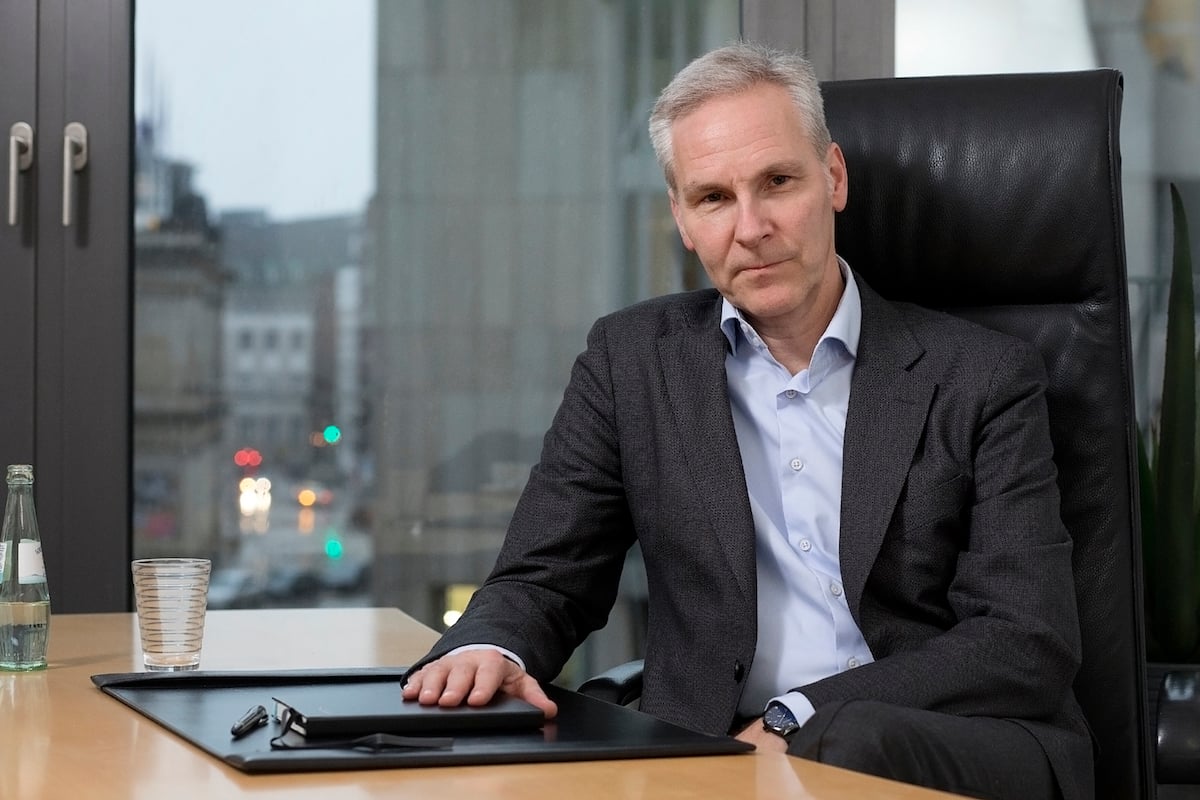His legal advice and his experience as a restructuring expert are much sought after:
enomyc CEO, Martin Hammer, conducted an interview with Dr. Lars Westpfahl, restructuring expert at the law firm Freshfields, about the economic effects of the COVID-19 crisis. The focus was on topics such as: Are the politics of cheap money taking their revenge now? Do only the systemically important corporations fit under the corona umbrella? Will the preventive restructuring framework now be implemented more quickly? And what can German SMEs expect? Learn more!
MH: Dr. Westpfahl, the main question that is decisive for me in this war is: what specific recommendations do you give your customers who are now experiencing liquidity problems?
LW: At the moment, we recommend that our clients always follow all the possibilities that are now opening up on the part of the state as closely as possible and then make full use of all the options – from short-time work benefits to tax-relevant deferral options and state aid. And since we are dealing with a lot of corporations that are not only active in Germany but also abroad, we also recommend that you examine the government support options in those countries as well.
In any case, one should start now to examine his or her possibilities and to take advantage of them. There are a number of companies that are directly, immediately, and fully affected. And then there are some companies that are not yet directly affected, but we also say to them: you’d better take time now to make sure your liquidity is holding together and to look at all these measures, because in a few weeks – potentially even longer – you will need your liquidity.
MH: Now, you have experienced the crises of the dot-com bubble in the late 90’s, 9/11 in 2001, and the Lehmann bankruptcy in 2008. What distinguishes the current corona pandemic crisis from the previous crises?
LW: Most definitely the speed. What happened in 2008 and how quickly the conditions changed back then – that was enormous even from the perspective of that time. I recall how quickly, for example, large parts of our firm were only concerned with crisis issues. But the speed of things right now easily leaves those occurrences in the dust; the speed at which companies here have developed an enormous need for liquidity (more or less overnight) is frightening and huge. Airlines, tourism, hotels, and catering companies are particularly affected.
This is also the basis for the cases that are now coming to us and which we are currently advising on applying for state aid. These are enormous sums of money! After all, these are large companies that have had to put their business models completely or in large parts into hibernation – but they still have fixed costs. This results in extraordinary liquidity requirements. We will now see whether the changes in civil law will lead to the liquidity requirements becoming a little smaller, but nevertheless, we are of course talking about huge sums.
MH: You are addressing a specific topic. Up until the corona crisis, almost all companies received every loan at very good conditions – in other words, at very low interest rates. Nevertheless, very few companies created high liquidity cushions. Do you think that the cheap money policy is now taking its revenge? And shouldn’t the corona crisis lead to a diametrical rethinking in the minds of business leaders so that the state doesn’t always have to be called in to help with precisely such extreme crises?
LW: Yes, I can understand that. We have been saying for quite some time now: we are surprised that many companies have not done their homework and – because they simply got cheap money – then had worked with the cash, and at the same time have not done everything that could help them now. I am not in a position to say whether such a thing could be tackled from a regulatory point of view. In any case, the fact is that too many companies lack sufficient liquidity cushions at the moment. In the case of groups of companies, such as banks, it is possible to take a regulatory approach, but for other companies it becomes more difficult.
MH: EUR 1.2 trillion are now to be pumped into the German economy to cushion the economic impact of the corona crisis. However, statistically speaking, about five to ten percent of companies already are so-called zombie companies. What is your assessment: will these companies come under the corona protection umbrella and also be eligible to receive these funds?
LW: I believe that, in case of doubt, the companies that are “zombie companies” would also receive state support. There are certain parameters that have to be fulfilled in order for these companies to qualify for state support. There are various programs: there are federal programs, and of course there is also aid at the state level. In principle, parameters need to be met, such as the static level of indebtedness and the availability of equity capital on a certain date.
Here, the individual case must be examined. It is likely that many of these companies can meet these criteria and will then probably incur further debt. In this is the case, it will lead to a huge wave of financial restructuring once the effects of this pandemic have subsided. It could be different for very large companies; the laws have just been passed. In the case of very large companies, the state is planning to go into equity – which, by the way, makes total sense. With the large number of smaller companies, this will not be the case. This will result in all the financial restructuring and probably at a stage when we will not yet have the preventive restructuring framework in place. This preventive framework then becomes extremely important for
MH: What do you think: will the preventive restructuring framework now be implemented more quickly – because of the existential situation of the economy? What effects will this have in the age of plant closures due to the corona pandemic?
LW: I think it will be implemented earlier than planned, but it will take a few more months. If you follow all the discussions and talks at the BMJV, you know that the devil is in the details. It is a law that is not that long, but it is very complex. I think the BMJV already has a proposal in its pocket and is ready to bring it to the table relatively quickly. However, it would be useful if the draft law could first be put up for general discussion. An alternative would be to perhaps bring certain measures from the restructuring directive into force in the short term, but I do not expect this to happen.
MH: You mentioned earlier about financial restructuring. How do you estimate the medium-term effects on the companies – especially with regard to the years 2021/22? When will the peak point be?
LW: This is difficult to judge. I think, firstly, it depends of course on how long we have to deal with the problem. It may well be that in a few weeks you’ll be able to say that you can slowly get everything up and running again. But, in exactly the same way, a new corona wave can hit us. Let’s say that the latter will not be the case. Then the first thing that becomes critical is when the obligation to file for bankruptcy due to overindebtedness comes into effect again. Next, the annual financial statements at the end of 2020 will be relevant. Then, latest when the maturities of the existing loans and also the maturities of the loans now secured by the state expire, the next peak will follow. This will presumably be in 2021 and 2022 – perhaps even earlier because companies cannot exist with these debts for that long. It’s hard to say. It will probably extend over the next two years from now.
MH: Let me come back to the large, system-relevant groups, such as Lufthansa, which is a relevant example for Germany. Now, there are thousands of quite large SMEs that will have to go through their principal bank with a counter guarantee and will suffer disadvantages when it comes to granting loans. How do you see this development? Will there be a two-tier system of fallback solutions?
LW: One thing is clear: you have to concentrate on the large companies first – which makes sense because other companies are also dependent on them. In this respect, it is therefore logical to provide efficient support services. At the same time, of course, help should also be provided quickly to smaller companies; however, I believe this will become a practical problem.
The German KfW (credit institute for reconstruction) is currently flooded with applications for guarantee support but is practically unable to provide them with quick processing, as many people there are now working in their home offices or are simply ill. I believe that for many enterprises, it will indeed take an extremely long time before they receive support. After all, some of them will benefit from the suspension of the obligation to file for insolvency. Good will is there, I believe, but logistically it will not be possible to do right by everyone. Of course, there will be different priorities that develop.
MH: Now, both restructuring consultants and insolvency administrators have to deal with a completely new situation. In your view, what will change for these two groups? And what will happen to the very formal, currently valid, and standardized expert opinions according to IDW S6 or S11? Do you think these will be replaced by a shortened examination method for the granting of emergency loans?
LW: For the restructuring consultants, of course, the way they work is changing temporarily; they cannot carry out their work directly at the client’s premises. And if you can’t do that, the conditions are simply more difficult. For the consultants who are operationally active, the services are on hold at the moment because, to the extent that companies have now reduced or closed down their activities, it is not possible to provide operational services in the same way as before. The consulting service will of course become that much more important when everything is up and running again.
We observe in the expert opinions that the applications for state guarantees state that there must be a thorough financing and business continuation forecast. In this respect, however, an IDW S6 expert opinion cannot be the deciding criterion. Rather, it is sufficient if a plausible scenario can be presented. For this purpose, the restructuring consultants who have prepared IDW S6 expert opinions in the past must be commissioned.
As far as insolvencies are concerned, it will take some time before they come – but then they will be regular to the extent that one would expect because the obligation to file for insolvency has been suspended. At present, insolvency administrators can do relatively little for insolvent companies. In the current situation, they simply cannot find buyers. They have no viable business to continue. When the business starts up again, there will of course be a lot to do.
MH: We agree with that. Thank you very much for your time and the interview, Dr. Westpfahl.



